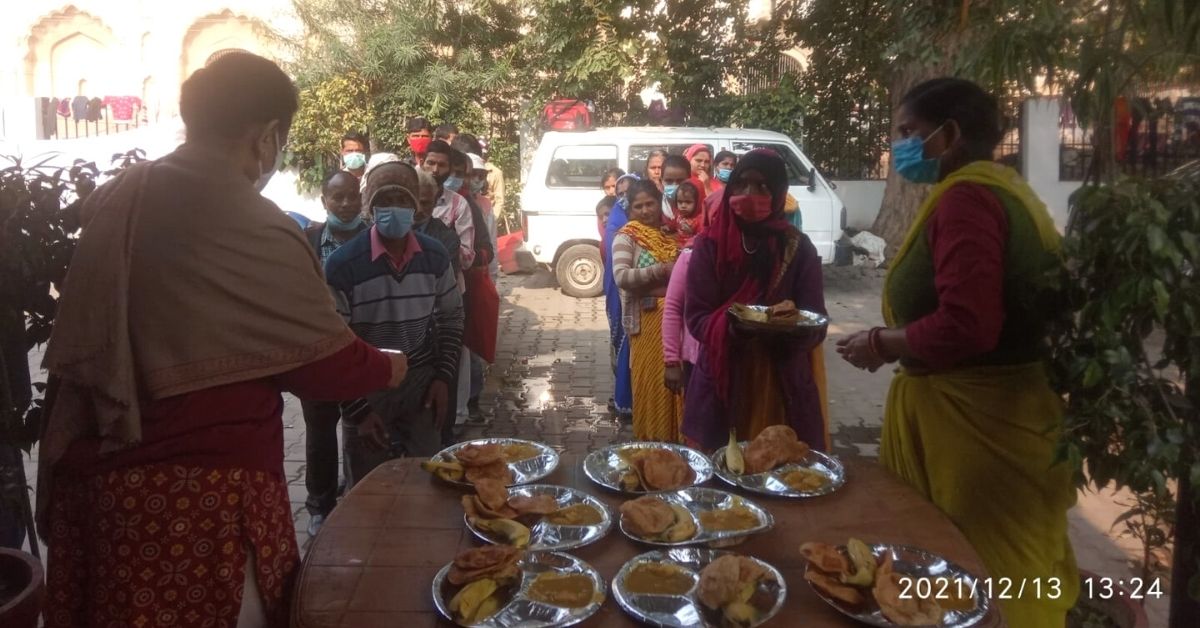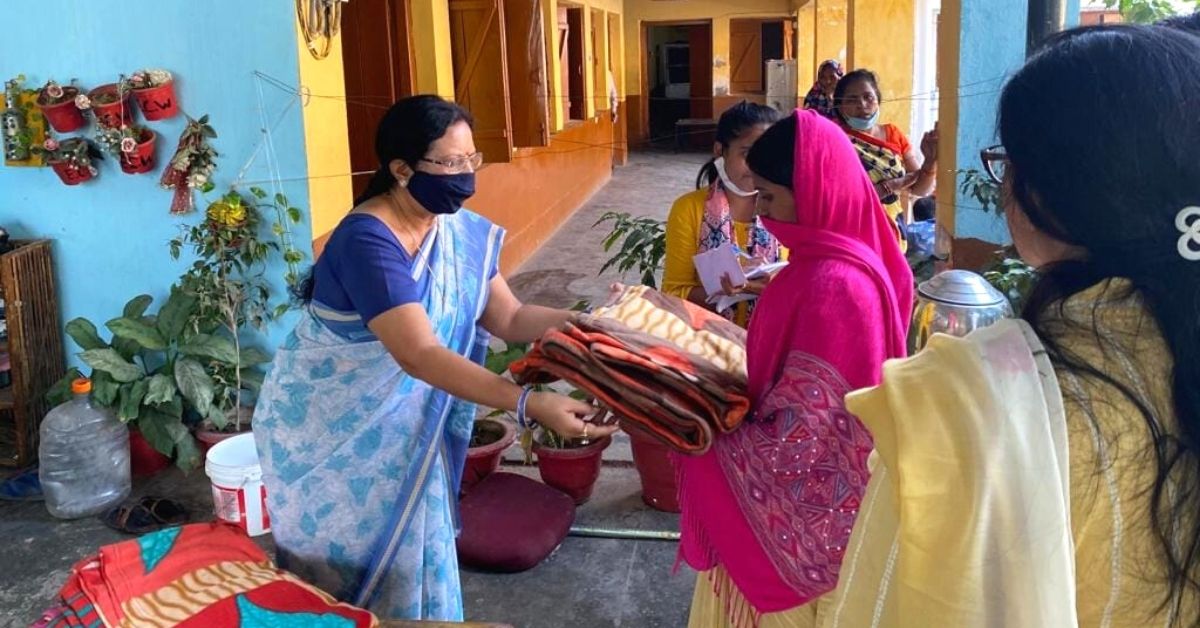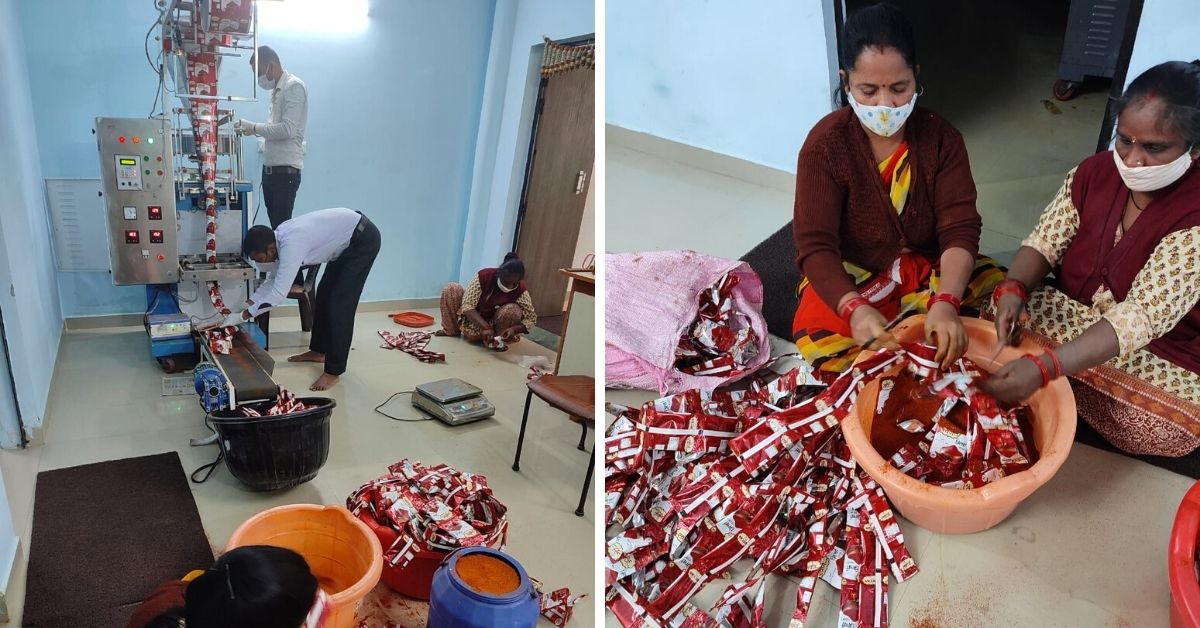Today, Mansi Rawat is pursuing her dreams as a student at a government nursing college in Lucknow. But just a few years ago, this dream seemed far-fetched — in 2015, she was diagnosed with a tumour, which required extensive treatment.
“My father, a farmer by profession, did not have the means to support my medical expenses,” she recalls in conversation with The Better India.
But when she met Sapna Upadhyaya, things began to look up.
For years, Sapna has been covering the cost of Mansi’s treatment. “She has been helping me by providing food and medicines, and has been covering my educational expenses as well,” Mansi says. “Thanks to her timely help, I will soon be able to work, earn a living and support my family.”
Mansi is presently in her third year.

Like her, hundreds of cancer survivors have found hope and solace with Sapna, who runs Eeshwar Child Welfare Foundation, an NGO in Lucknow, Uttar Pradesh.
Launched in 2005, the organisation has helped thousands of cancer-stricken children with free food, ration and treatment. Sapna has also enabled children from financially weaker backgrounds to become independent.
Empowering cancer survivors
Speaking with The Better India, she says she was a microbiology student and a homemaker when her life took a sudden turn.
“My daughter was five years old when she was diagnosed with asthma in 2002. She was going through a critical phase, and suffering from a high fever. She was admitted to the King George’s Medical University (KGMU) hospital in the city,” she recalls.
Sapna says that as she and her husband were waiting at the hospital while their daughter underwent treatment, she met a mother who could not afford surgery for her son. “The woman’s son had acute pneumonia and needed Rs 16,000 for the surgery. But as she could not afford it, her child’s life was in danger. I requested my husband for help, who offered immediate support of Rs 20,000,” she says.
The surgery was a success, and Sapna was relieved that she was able to help save the child’s life. Now 51, she says the incident left a deep impression on her mind.
So she started distributing medicines, food, and clothing to the children in the hospital. “Initially, I borrowed money from my husband, who owns a business in the cellular industry,” she says.
But as the number of beneficiaries increased over months, Sapna realised that her husband’s income could no longer support her cause.

“I learned that many children had been diagnosed with cancer, and needed help for a longer duration. My husband’s income alone could not support my cause. To seek monetary help, I quit my research and established the NGO in 2005,” she says.
Sapna explains, “The disease is not curable. But ensuring early detection and medication can help reduce considerable cost and pain in patients. Hence, I decided to focus on children with cancer.”
Sapna provides monthly ration, food, medicines and other needful material to children and parents. “The ration is supplied every week to two hospitals — KGMU and Dr Ram Manohar Lohia Institute of Medical Sciences — that help 3,500 persons. Children undergoing treatment are provided with freshly cooked meals three times a day. Besides, the beneficiaries receive blankets, clothes and other daily items based on need assessment,” she adds.
The children at KGMU hospital are registered with the medical institute during admittance. Once they are acquainted with the hospital and medical care, the NGO intervenes to provide required help within the premises.
Dr Aruna Narayan, former joint director at National Health Mission (NHM), has worked with Sapna for almost 12 years. She says, “I met Sapna when she visited me regarding a project for children. I visited her NGO and saw that she was offering genuine help. Some children have survived cancer and carved a successful career with her help.”
Over the past 17 years, Sapna’s initiative has benefitted over 20,000 children, she says, adding that of the total, 160 have recovered and led an active life.
Sapna adds, “We provide rehabilitation, education and employment opportunities to cancer survivors and their siblings. If an entire family receives help, then only their overall social and financial situation can improve.”
In 2015-16, the NGO started a craft and jewellery unit to empower mothers of children with cancer. “The aim is to make them financially independent. In 2020, fathers of many children lost their jobs due to COVID-19. The NGO established Swarn Food and Crafts, a spice manufacturing company, to help such families. The initiative helped 30 families earn a living, and 10 per cent of the sales money is directed to fund the NGO,” Sapna notes.
‘Empathy is temporary’

The NGO also depends on donors for monetary aid, and does not receive any government funds, Sapna says. “We have about 12,000 donors, including doctors, social groups and individuals who contribute in multiple ways,” she adds.
However, consistently offering help has not been a cakewalk. “I underwent countless hardships. When I started free cremation for cancer children in 2008, the people conducting rituals resisted, as they suffered monetary losses. On one occasion, our car was stolen by our driver. Initially, we did not have our own space and relied on rented properties. Also, many people appreciate our work, but the number of donors offering help is not enough. Running the initiative costs Rs 10 lakh per year, and it becomes difficult to raise the heavy amount. At times, some people criticise and show no faith in our work,” she says.
Sapna says only genuine work has helped her survive over the years. “I sincerely visited children every day and provided meals. I offered them the items they needed the most. My work spoke for itself, and people slowly started recognising my efforts. I struggled to earn credibility until 2010, after which the financial situation improved,” she adds.
She hopes to help more children and their parents in the future. “My motive is not only to empathise with the children, but offer genuine care and long term support. Empathy for a person lasts temporarily, but empowering children and their parents goes a long way. It’s not easy to make children smile. But I am determined to help better their lives,” Sapna says.
For more information or helping the NGO, click here.
Edited by Divya Sethu
No comments:
Post a Comment